March 4th History Lesson
U.S. and World History
1681 – England’s King Charles II granted a charter to William Penn for an area of land that later became Pennsylvania.
1789 – The Constitution went into effect as the first Congress met in New York City. However, of the 22 senators and 59 representatives called to represent the 11 states who had ratified the document, only nine senators and 13 representatives showed up to begin negotiations for its amendment.
1791 – Vermont was admitted to the United States as the 14th state.
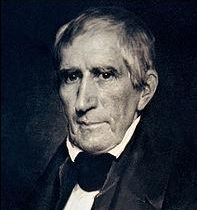
1841 – William Henry Harrison was inaugurated as the 9th President of the United States. On a very cold and wet day, Harrison wore neither an overcoat nor hat, and rode on horseback to the ceremony rather than in the closed carriage that had been offered him. He then proceeded to deliver the longest inaugural address in U.S. history. At 8,445 words, it took him nearly two hours to read it.
Thirty days later, he became the first U.S. president to die in office – after the shortest term (30 days) of any American president – when he passed away from “pneumonia of the lower lobe of the right lung.”
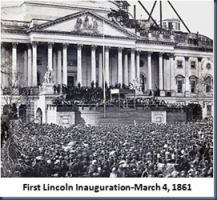
1861 – Abraham Lincoln became the 16th president of the United States. In his inaugural address, Lincoln extended an olive branch to the South, but also made it clear that he intended to enforce federal laws in the states that seceded.
1913 – Woodrow Wilson was sworn in as the 28th president of the United States.
1917 – Republican Jeanette Rankin of Montana took her seat as the first woman elected to the U.S. House of Representatives.
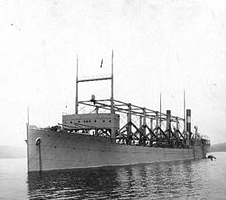
1918 – The USS Cyclops departed from Barbados and was never seen again, presumably lost within the area known as the Bermuda Triangle. The loss of the ship and 306 crew and passengers remains the single largest loss of life in U.S. Naval history not directly involving combat.
1933 – Franklin D. Roosevelt was inaugurated as the 32nd president, pledging to lead the country out of the Great Depression. Roosevelt outlined his New Deal – an expansion of the federal government as an instrument of employment opportunity and welfare – and told Americans that “the only thing we have to fear is fear itself.”
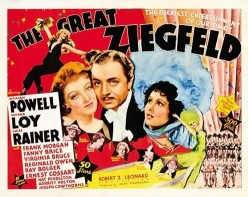
1937 – At the 9th Academy Awards, The Great Ziegfeld won the Oscar for Outstanding Production (precursor to Best Film).
Paul Muni (The Story Of Louis Pasteur) was named Best Actor, with Luise Rainer (The Great Ziegfeld) winning Best Actress.
The ceremony marked the first time in which the categories of Best Supporting Actor and Actress were awarded and those winners were Walter Brennan (Come And Get It) and Gale Sondergaard (Anthony Adverse).
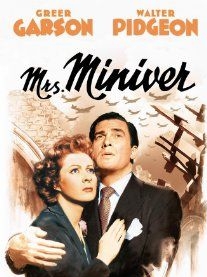
1943 – At the 15th Academy Awards, Mrs. Miniver was named Outstanding Motion Picture, beating out films such as Yankee Doodle Dandy, The Talk Of The Town, and Kings Row.
James Cagney (Yankee Doodle Dandy) won the Best Actor award, with Greer Garson (Mrs. Miniver) winning Best Actress.
Van Heflin (Johnny Eager) won Best Supporting Actor, while Teresa Wright (Mrs. Miniver) won Best Supporting Actress.
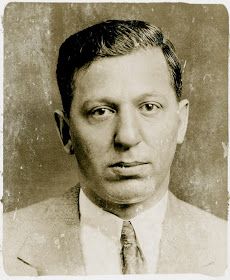
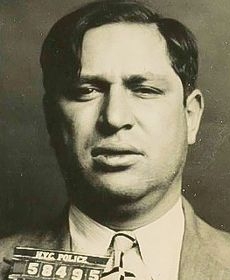
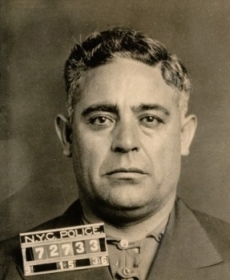
1944 – Louis “Lepke” Buchalter , Emanuel “Mendy” Weiss, and Louis Capone (not related to Al Capone), all of them part of Buchalter’s criminal organization known as Murder, Inc. during the 1930s and early 1940s, died in the electric chair at Sing Sing Correctional Facility in New York for the murder of Brooklyn candy store owner Joseph Rosen.
1944 – The U.S. Eighth Air Force launched the first American bombing raid against the German capital of Berlin. Fourteen U.S. bomber wings took off for Germany from England but only one plane reached Berlin. The rest dropped their loads elsewhere. In retrospect, the initial American attack was considered “none too successful” (as recorded in the official history of U.S. Army Air Force).
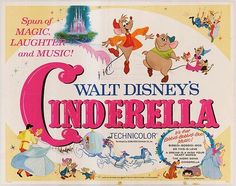
1950 – Following premieres in Boston, New York and Chicago one month earlier, Walt Disney’s Cinderella opened in theaters across the U.S.
1952 – Ernest Hemingway completed his short novel The Old Man and The Sea. He wrote his publisher the same day, saying he had finished the book and that it was the best writing he had ever done. The critics agreed: The book won the Pulitzer Prize in 1953 and became one of his bestselling works.
1968 – In a draft memorandum to the president, the Ad Hoc Task Force on Vietnam advised that the administration send 22,000 more troops to Vietnam, but make deployment of the additional 185,000 men previously requested by Gen. William Westmoreland (senior U.S. commander in Vietnam) contingent on future developments.
General Westmoreland, who, in a reply four days later, welcomed the additional 22,000 troops, but insisted that he still needed the full requested reinforcements by year’s end. Ultimately, President Lyndon Johnson and his advisers, seeking a way to disengage from the war, refused Westmoreland’s request for more troops.
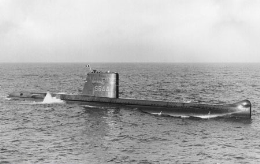
1970 – French submarine Eurydice exploded while diving in calm seas off Cape Camarat in the Mediterranean, resulting in the loss of the entire 57-man crew. The cause of the explosion was never determined.
1987 – President Ronald Reagan addressed the nation on the Iran-Contra affair, acknowledging his overtures to Iran had “deteriorated” into an arms-for-hostages deal.

1995 – Actor/comedian John Candy died suddenly of a heart attack at the age of 43. At the time of his death, he was living near Durango, Mexico, while filming Wagons East, a Western comedy.
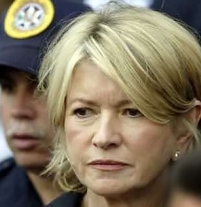
2005 – Billionaire mogul Martha Stewart was released from a federal prison near Alderson, WV, after serving five months for lying about her sale of ImClone stock in 2001. After her televised exit from the facility, Stewart flew on a chartered jet from nearby Greenbrier International Airport to New York, where she would serve out her remaining five-month home confinement on her 153-acre Bedford estate.
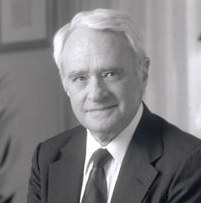
2007 – Thomas Eagleton, a United States Senator from Missouri for 20 years, died of heart and respiratory complications at the age of 77.
Eagleton was briefly the Democratic vice-presidential nominee (under George McGovern) in 1972 until it was revealed he had checked himself into the hospital three times for physical and nervous exhaustion, receiving electroconvulsive therapy twice.
Compiled by Ray Lemire ©2015 RayLemire.com. All Rights Reserved.
You may not, under any circumstances, reproduce, record, publish, republish, post, transmit, publicly display, publicly exhibit or distribute any articles or photographs on RayLemire.com without obtaining the express written consent of the Operator.